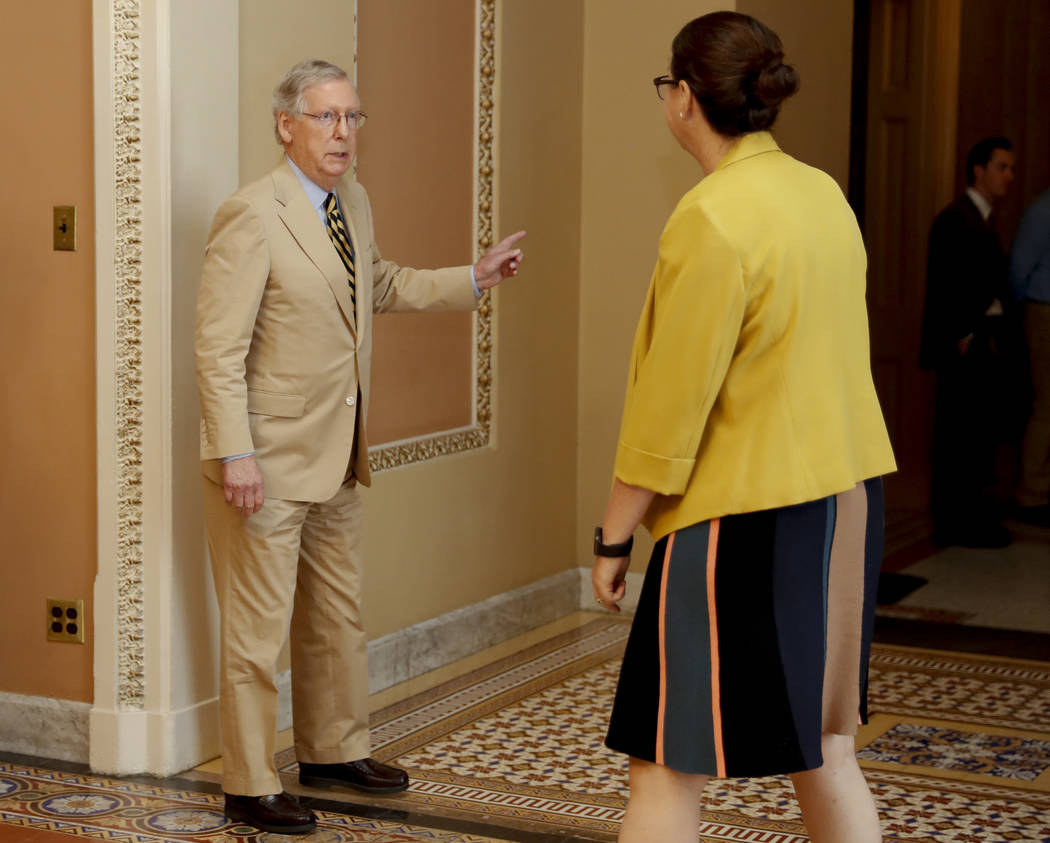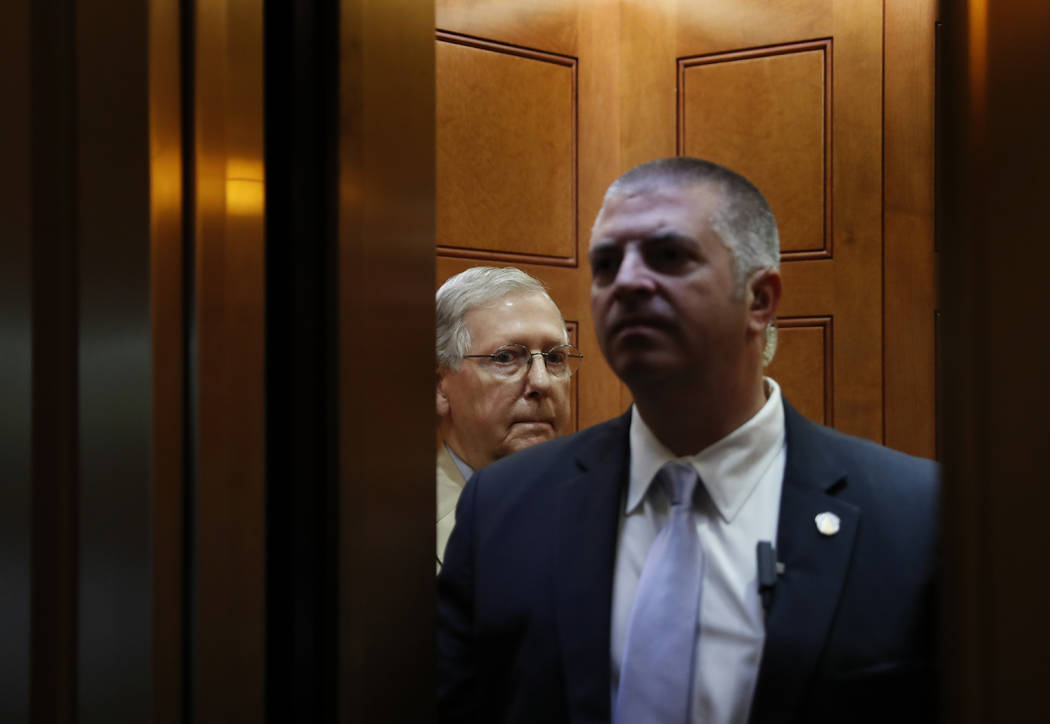CBO analysis: Senate health bill would leave 22M uninsured
WASHINGTON — Senate Republicans were barreling ahead Monday for a showdown vote on a health care reform bill despite independent analysis that showed the GOP plan would leave 22 million uninsured.
President Donald Trump weighed in Monday, calling Democrats “obstructionists” for their opposition to repealing and replacing former President Barack Obama’s signature health care legacy legislation.
But Republicans were scrambling to appease factions within their own party before a vote expected later this week.
Sen. Dean Heller, R-Nev., blew open the intra-party divide the Senate GOP faces when he announced Friday that he would vote against the current draft of the bill because of its cuts to Medicaid and the end of expansion of the program, which insured more than 200,000 additional Nevadans.
Heller’s opposition followed four conservative GOP lawmakers, led by Sen. Rand Paul, R-Ky., who said the draft bill did not go far enough to cut costs and fully repeal the Affordable Care Act, commonly called Obamacare.
The Senate is trying to pass the bill under budget reconciliation rules, which allow it to approve legislation with a simple majority and without threat of a Democratic filibuster. But the Senate must stay within budget parameters.
The Congressional Budget Office found the Senate draft would leave 22 million uninsured over 10 years yet reduce federal deficits by $321 billion over that time.
The CBO found that a House-passed health-care bill would leave about 23 million without coverage over a 10-year period and reduce the federal deficit by $119 billion over the same period.
The extra savings in the Senate bill, which comes from tax cuts, gives Senate Majority Leader Mitch McConnell, R-Ky., more flexibility to offer programs like opioid addiction coverage to attract moderate senators wavering on the bill.
Groups announce opposition
Still, the analysis comes on the heels of several major groups announcing their opposition to the bill and its proposals, particularly Medicaid cuts.
The National Association of Medicaid Directors, a bipartisan organization that represents state agencies across the country, said any changes to Medicaid need clearly articulated legislative changes for states to follow.
“The Senate bill does not accomplish that. It would be a transfer of risk, responsibility and cost to the states of historic proportions,” the association stated.
And the nation’s largest doctors’ group, the American Medical Association, sent McConnell and Senate Democratic Leader Chuck Schumer, D-N.Y., a letter outlining its opposition.
“Medicine has long operated under the precept of Primum non nocere, or ‘first, do no harm.’ The draft legislation violates that standard on many levels,” the AMA wrote.
Democrats have remained united in opposition of repeal of the ACA, instead urging Republicans to make changes to the program instead of replacing it with one that is being crafted without committee hearings.
“There is a reason they want to jam this through in one week,” Schumer said, “They are ashamed of their bill.”
Sen. Catherine Cortez Masto, D-Nev., said the Senate’s draft bill would not only hurt many Nevadans, but it would have a disproportionate impact on minority communities. She said uninsurance rates for Latinos in the state fell from 34 percent to 19 percent under the ACA — and dropped from 20 percent to 10.7 percent for Latino children.
Cortez Masto said non-elderly Latinos would suffer the most under Medicaid cuts in the Senate draft.
Republicans update bill
Trump, in a tweet early Monday, said Republicans were working “very hard” to craft health care legislation without support of Democrats. Trump said the alternative would be to let Obamacare “crash and burn” on its own.The Senate released an updated version of its bill Monday.
A change in the bill was aimed at closing a gap that would allow healthy people to not buy insurance until they became ill, and purchasing a plan when they had a pre-existing condition.
The change would require that people who let their coverage lapse for 63 days in one year would be locked out of the insurance market for six months the following year.
Republican leaders were still crafting changes to the legislation on Monday, seeking ways to sway lawmakers. There are nine senators who have voiced concerns about the bill, and five who have said they would not vote for it in the current form.
Sen. Susan Collins, R-Maine, noted that the bill defunds Planned Parenthood, which offers cancer screening and family planning for low-income women. She also questioned coverage under the bill for people in rural areas.
White House spokesman Sean Spicer said Trump called Paul and Sen.Ted Cruz, R-Texas, and probably others, over the weekend. Paul and Cruz are two of four conservatives who have called the draft legislation too liberal.
Paul said Monday that the lack of time to digest the 149-page bill, the CBO score and additional changes would make it difficult for many senators to vote for it this week.
Heller, who faces re-election challenges in 2018 in Nevada, said “The CBO score confirms that the bill in its current form doesn’t go far enough to lower costs for Nevada families or protect Nevadans on Medicaid.”
Contact Gary Martin at 202-662-7390 or gmartin@reviewjournal.com. Follow @garymartindc on Twitter.
RELATED
Heller talks of effort to spare Nevadans from deep Medicaid cuts
Senate Republicans unveil Obamacare replacement, but run into opposition




















